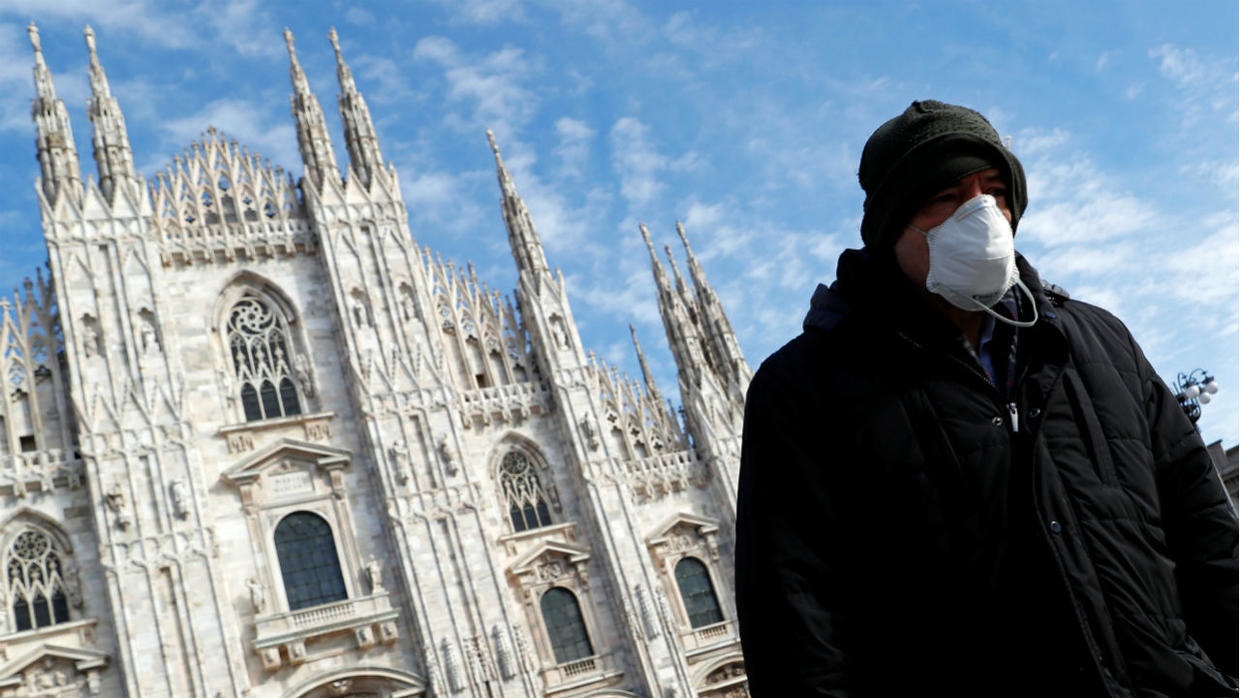I am not talking about mass hysteria, the kind of panic that translates into irrational behaviour and stops us from being kind to each other. I am talking about a more ‘rational’ type of concern, based on facts and the acceptance of reality.
The recent outbreak of the Coronavirus in Italy has certainly made us more aware of this new threat. Just this last weekend, a walk around Leeds city centre showed me that a few shops were running out of anything with the label ‘antibacterial’ on it. We know that the first Covid-19 cases were reported in Italy on the 31st of January, and from that moment on it’s been essentially non-stop. The number of people infected has just kept increasing, reaching now over 1,000 cases, with 11 out of 20 Italian regions affected.
As an Italian living in Leeds, hearing this news on a daily basis has a certain impact. Up until a few weeks ago, although moderately worried about the spread of the virus, I barely kept up with the latest on the matter and, overall, I lived my life with no significant difference. But when I first heard about the outbreak in Italy, it immediately hit home, and quite literally in this case. It suddenly catapulted me into a state of anxiety, of worry about my parents, and especially my brother who lives in the North, not too far away from the most affected areas.
You might say, I started panicking. I immediately messaged some Italian friends living here in the UK, mostly to make sure that their families were okay, but also to share my feelings of anxiety. And even though it was meant as a joke, their reaction almost sounded like a sneer, an ironic playing down of the situation and the need to worry. ‘Oh Giulio, you’re such an allarmista’ (an ‘alarmist’…apparently it’s a thing now), they said, and proceeded to ask me if my next step was to go and raid shops to secure food supplies.
That made me think. We live in a society where we are often told not to worry. Whether it be climate change, constitutional crises or health emergencies, nah, nothing’s really out of the ordinary and everything’s under control. Among the top elites, the tendency is to keep the public happy, at almost all costs; at the same time, as members of the public, we like to hear that our lives will continue as normal, with no change at all required. And the media often get the blame, because they ‘overdramatise’ things or they are ‘alarmists’ (a category of which I have now been granted citizenship).
I get it, hope is crucial to all of us. We need something to look forward to, and it has to be something positive and rewarding, not the prospect of misery and despair. But that is not what it’s being encouraged here. As I said in my opening, there is a difference between an ‘irrational’ type of panic and a more realistic concern. The former blindly looks for comfort and reassurance and finds enemies everywhere, be they Chinese people, because they ‘inherently’ carry the virus, or people who voice their anxiety, the infamous ‘alarmists’. A realistic kind of concern is one that it’s open to acknowledging new information and the possibility of having to change our ways. It means caring for ourselves and others around us. It can also mean having to wash our hands several times and thoroughly, without worrying of being called ‘OCD’ (yet another of those categories, and in this case, sadly intertwined with the stigma around mental health).
We should not live in fear. But if we really want to keep everybody happy and safe, then a certain amount of preoccupation can be useful. As a recent report from the Guardian brilliantly put: ‘The actions that young, healthy people take […] will have an important role in protecting the most vulnerable in society’.
We really don’t know what’s going to happen with this new Coronavirus. And even after writing all of this, it is quite tempting for me to just conclude with an ‘everything is going to be alright’ type of line. Instead, I am going to compromise and say that a higher number of people are going to be okay, if we all keep informed and take actions as a community.
The original article can be found at https://www.theguardian.com/world/2020/mar/01/yes-it-is-worse-than-the-flu-busting-the-coronavirus-myths
Giulio Bajona
Image credit: France 24

